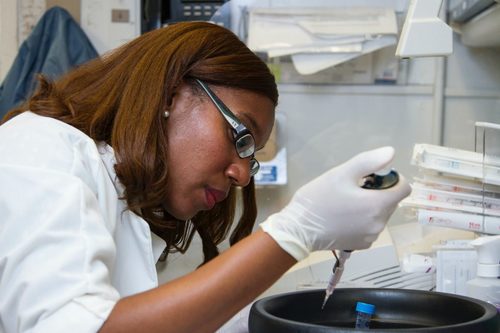Professor Jo-Ann Passmore, a medical scientist and expert in sexual reproductive health at the University of Cape Town (UCT), is actively engaged in the development of revolutionary technology capable of rapidly identifying bacterial vaginosis (BV) and related genital tract inflammation, even in cases where no symptoms are evident.
ALSO SEE: Battle of the bacteria: how to keep your home clean and healthy
As reported by News24, this pioneering biomedical research by Professor Passmore has established a significant link between genital inflammation, sexually transmitted infections (STIs) and BV and their pivotal role as risk factors for HIV transmission and complications during pregnancy, particularly among adolescent girls.
Passmore’s research group focuses on investigating inflammatory biomarkers in the genital tract and the mucosal surface immunity that either offer protection against or increase susceptibility to STIs, including HPV and HIV. Their work encompasses several randomised controlled trials and randomised cross-over studies that evaluate the impact of hormonal contraceptives on the risk of HIV in young women in South Africa.
The research underscores the challenges stemming from limited access to healthcare services and the high costs associated with STI-specific tests, which have led to a heavy reliance on diagnosing STIs and BV based on observable clinical signs and symptoms. A significant issue arises due to the considerable number of women and adolescent girls carrying STIs or BV without displaying any symptoms, potentially resulting in undetected and untreated cases.
Barriers such as the expense of medications, the stigma associated with STIs and BV and the inconvenience of lengthy clinic visits further discourage individuals from seeking medical assistance, leading to low rates of diagnosis and treatment.
The study also highlights that adolescent girls and young women between the ages of 15 and 24 face a higher risk of HIV infection compared to their male counterparts. In 2022, UNAIDS reported that adolescent girls and young women in sub-Saharan Africa were three times more likely to contract HIV than their male peers within the same age group.
Passmore said that, in addition to the diagnostic hurdles, existing treatments for STIs and BV in Africa primarily rely on samples collected from women participating in clinical trials in more developed regions.
‘The underrepresentation from Africa poses a significant challenge in comprehensively understanding the factors crucial for targeted, practical and relevant treatment. This scarcity of African data underscores the urgent need for targeted research on the continent to develop effective treatments for African women,’ she told News24.
To combat the elevated rates of HIV infection and enhance pregnancy outcomes in sub-Saharan Africa, Passmore advocates for a comprehensive approach that addresses the underlying issues comprehensively.
‘The alarming rates of HIV infection among adolescent girls and African young women underscore the urgency of addressing underlying factors. By embracing an integrated approach that tackles untreated STIs and BV, we are more likely to reduce HIV incidence in Africa,’ she said.
To surmount the challenges associated with diagnosing asymptomatic STIs and BV, Passmore and her team at UCT are actively developing a revolutionary technology. This technology revolves around a test for genital inflammation, utilising vaginal samples to screen for such inflammation. This innovative approach enhances early detection and intervention in cases of asymptomatic STIs and BV, consequently diminishing the risk of HIV infection.
Professor Passmore further elaborated that this technology, akin to an off-the-shelf pregnancy test, boasts a non-invasive, cost-effective and user-friendly design, making it a valuable tool that can be swiftly and easily administered in primary care settings or even as part of home-based care. She highlighted that this foundational research will contribute to the development of live probiotics to treat BV and related genital tract inflammation.
‘By understanding the geographic variations in vaginal microbiomes that underlie BV in Africa, the Vaginal Microbiome Research Consortium for Africa can develop targeted interventions that can be tailor-made for and made available to African women and adolescent girls,’ she explained.
Written by Sarah du Toit for Cape Town ETC.
ALSO SEE:
Feature Image: Unsplash

